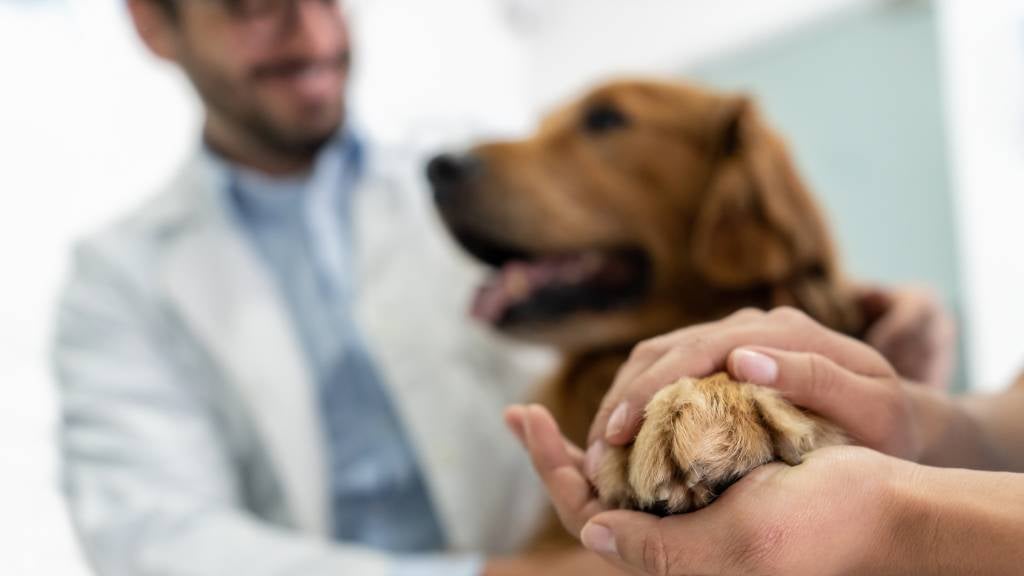Stress-free vet visits

Kia ora, animal lovers!
As pet parents, some of you will have furry friends that have an overly eager response when it comes to veterinary visits. Lucky you! But for those showing less excitement, there’s a lot that can be done to make it as stress-free as possible, with time and commitment - a genuinely pleasurable experience for all is well within reach!
If you do have a less enthusiastic pet, contact your vet team well in advance. What needs to be done to make the vet visit less stressful depends entirely on the level of stress of your animal – and that of their human! Also think about the whole visit process, not just the vet clinic part. And remember, don’t be in a rush on the day; give yourself plenty of time.
Start early and go slow
Starting early means *really* early! After first bringing home your new family member, make sure you have regular, fun, trips to your local vet clinic. Do weigh-ins during growth periods and talk with your vet team about how to reward good behaviour and other things you can do at home to prepare for clinic visits.
Some animals may show undesirable behaviours at the clinic. It’s not really fair to call it “bad behaviour” – most of the undesirable traits that we see either through very high degrees of excitement or fear, are a response to that emotion, so are perfectly reasonable to that situation. The aim here is to modify the undesirable behaviour, to one that is desirable and acceptable. Anyone who is afraid of spiders understands how undesirable behaviours happen when surprised by one – some pets feel the same way about vet clinics, and veterinarians.
Here are some tips to try that will ensure your furry mate stays calm and stress-free during their next vet visit:
Reducing anxiety in pet parents
Animals are smart and will pick up on your anxiety and respond accordingly so be mindful of your own response. Making lots of trips to the clinic to say hello, buy a toy or treat, or record your pet’s weight are good ways for everyone to get used to the clinic - and your vet team loves to say hi to you and your furry friend!
Start using a carrier
If a carrier is necessary, get your pet used to being in and around it. Instead of hiding the carrier in a closet when not in use, leave the carrier out and place treats or toys inside to help it become a familiar and positive place. For many cats, the carrier coming out is a really good predictor of something unpleasant happening and the stress can start with trying to just get them in the carrier. Be mindful this takes time so it’s not one to be started a week before the trip, and certainly shouldn’t be trialled on the day of the visit. The car ride can be a challenge. Remember that de-stressing the veterinary clinic trip means thinking of the whole experience, not just the time at the clinic. You can talk to your vet team about how to reduce the stress of being in, or even seeing the carrier.
Waiting rooms – it’s a party!
Most clinics have procedures in place to lessen the chaos in waiting rooms – if this isn’t the case, then consider waiting outside in the car park or in your car (don’t leave your pet in the car on a hot day!). The mixing of animals and children can be quite overwhelming especially for the shy ones , so try to support their needs as much as you can. This could include avoiding placing the carrier on the floor and covering it with a light towel to make your pet feel safe. Some clinics are certified as “Fear Free” or “Cat Friendly” and take additional steps to keep your vet visit low stress.
Rewards for treats and comfort
Stay calm and reward accordingly.
Treats can be used to distract animals during physical exams and vaccinations and may help to create a positive association. Use treats that can be broken up into small pieces or soft treats that can be licked. Pureed treats work particularly well for cats since they are easy to consume.
Some animals may also benefit from medication to reduce stress given prior to a clinic visit. Speak to your veterinarian about the options available for your furry friend.
Companion Animals New Zealand accredited organisations that can also help give you great advice include: The Association of Professional Dog Trainers New Zealand and International Association of Animal Behaviour Consultants.
Like all things - practice makes perfect
Things will go wrong! It’s good to keep your cool and continue to practice - you can get more advice and definitely don’t be disheartened. There are some amazing things that can be achieved through patience and training such as Co-operative Care Training, that will take time, but can be amazingly rewarding, and less stressful for all involved.
Regular check-ins with your veterinary team are important and ideally should be relatively stress-free, that’s better for all our welfare!
Treat yourself to a happy pet with SPCA Pet Insurance.
30 May 2022